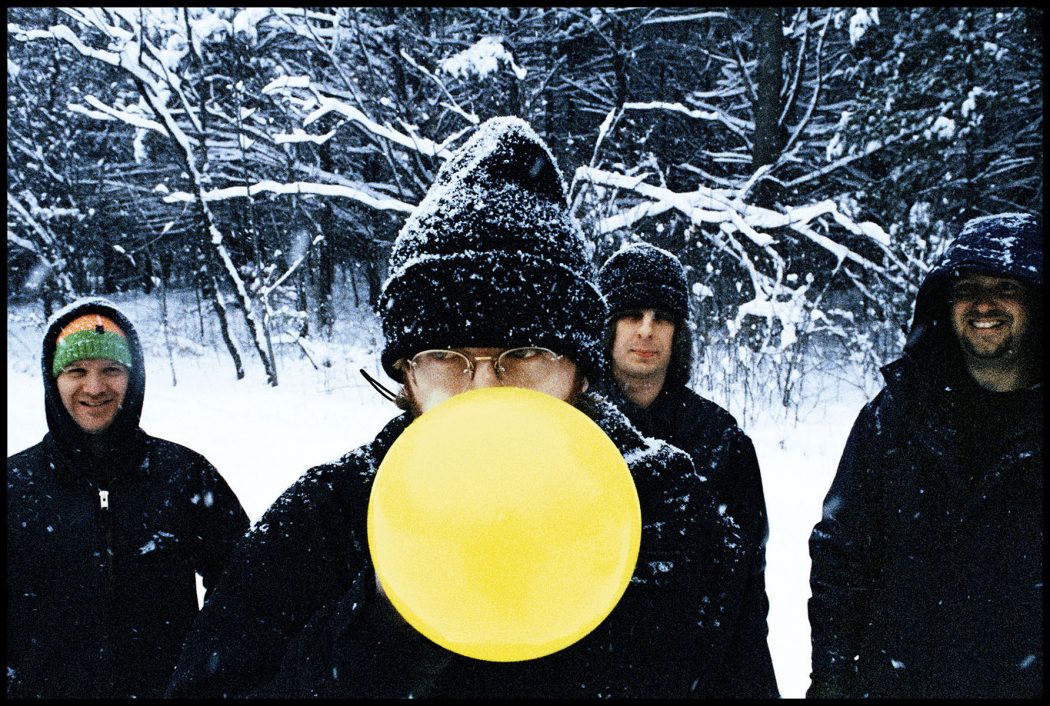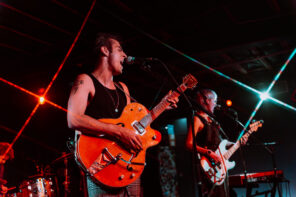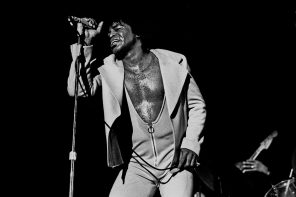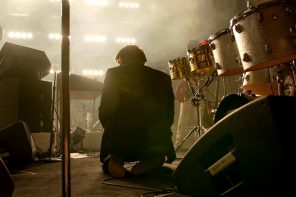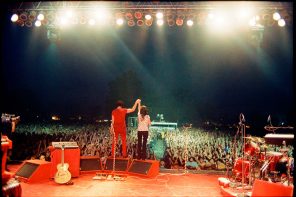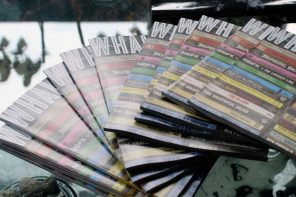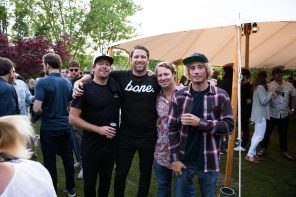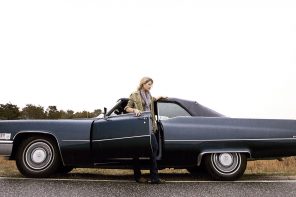It was 2004 in Coventry, VT, and it had been raining for six days straight, leaving three feet of fresh mud on the ground. I was one week off of tearing my ACL/MCL back in Boulder, and now found myself rocking crutches through the Vermont mud season and falling face down about every 50 feet. I would be spending the next three nights sleeping in a Dodge Chrysler I rented in Montreal to avoid the under 25 driver fee, in a section of Vermont where the Governor declared a state of emergency less than 24 hours before.
I was joining friends who had walked up to 20 miles to get to the venue, abandoning their cars on the highway after waiting in line for up to 24 hours, now carrying three days of food and camping goods on their backs. All to witness the three-day event that was a Phish show.
I’m not telling you this because it was some badass party story, or that this weekend culminated in a transformative and positive ending (anyone there will tell you the music was complete shit and with a few dozen shows under my belt, I think I get it at this point). I’m telling you this because there’s a band out there that most of you either love or hate, but nevertheless a band that has built a cult-like following over their 34-year career that is so fucking devoted, that the vast majority of them are willing to endure anything to experience them live. That kind of loyalty is not something you can buy nor just create overnight.
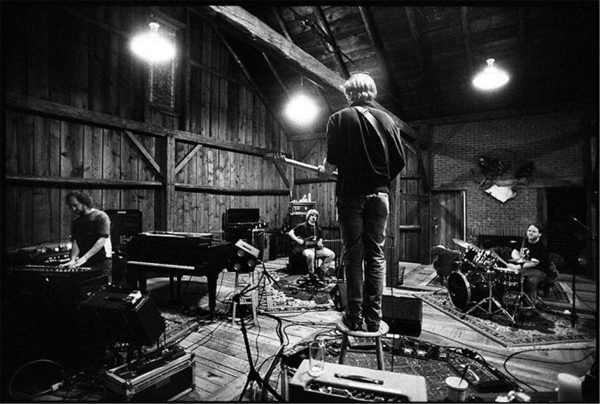
Photo: Danny Clinch
This is the story of a true “startup” in the music industry, and in that framework, Phish is the epitome of the entrepreneurial experience. They came to market with a minimum viable product, iterated it until they found their niche with the live experience, then built their tribe one rabid fan at a time. In an era when very few in the music industry have a clue on how to survive long-term without some corporate sponsorship take over or flash in the pan hit single, Phish keeps producing and their fans keep buying and you’ve got to respect that.
They began in 1983 in Burlington Vermont, and after 5+ years of nonstop practice (what’s that 10,000 hour rule?), and perfecting their craft, the band has been a profitable venture every year since. A pretty incredible feat considering that only one of their original albums ever cracked the Billboard top 10, and out of over 300 original songs and 883 in their catalogue, not one ever became a typical “radio hit.” How do you do this as a band? How did they generate over $120 million in revenue in the first 5 years since their return from their “hiatus?” Like any good startup, they found their market fit, and stuck to the idea of selling an experience above all else—well before it was a marketing buzzword. With an average gross of over $1.6 million per show in 2016, surpassing bands like Radiohead, Elton John and Pearl Jam, the band has something figured out while very few are even paying attention.
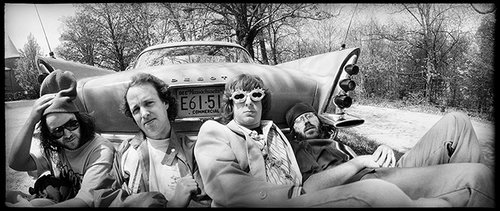
Photo: Danny Clinch
Phish doesn’t make money by selling music the typical way—meaning studio time followed by radio play, followed by massive marketing efforts, which all “hopefully” lead to album sales. They make money by selling live music, and that is a more sustainable business model. This wasn’t some calculated strategy from the band; it’s the business model that came from the music they play and people buying the experience that the band offers. Phish’s most valuable asset is their ability to entertain and keep fans hungry for the live experience, over and over again. Their fans were in the “iPhone line” long before Steve Jobs came back to Apple. They have played more than 1,500 shows and have never played the same set twice…seriously.
With this model, their success was almost completely independent of record companies, radio stations, PR people, corporate sponsors and other entities that bands often need to pander to these days in order to survive. Working with artists such as David Welker on concert posters, sculptors for the parking lot installations, performance artists for intermissions and even marching bands, the experience of the live event is above all else, and the fans involvement in that experience is critical, and as important as the music itself.
Drummer Jon Fishman explains “For five years we had Nectar’s [in Burlington] and other places around town to play from nine until two in the morning. We’d get three-night stands, so we didn’t even have to move our equipment. Basically, the crowd was our guinea pig. We’d have up to five hours to do whatever the hell we wanted.”
They have played more than 1,500 shows and have never played the same set twice…seriously.
This loyal tribe of fans then not only dragged their friends to shows, but also started taping the performances and passing them out to friends—taking a cue straight from the Grateful Dead playbook. Instead of shutting down this pre-Napster-Napster, the band encouraged it. This word of mouth provided great marketing that lead to larger crowds, but it helped build that obsessive fan base that would later covet the band, this mutual appreciation was the embodiment of the Phish product.
Then the band grew up…achieving financial independence before the music industry even recognized they were a thing, and they were able to do whatever they wanted. They took their early profits and started their own management company, Dionysian Productions. They hired a staff of 40+ that handled their elaborate stage productions, their own merchandise company, and they even started a mail order ticket company so that fans could send them money orders and buy tickets directly from the band. A process still in existence, now evolved into a highly coveted online lottery.
When file sharing and piracy disrupted the music industry, Phish was sheltered because their primary business was selling access to live music, not the recorded product. In fact, the band was able to take advantage of this trend, bundling digital downloads of live performances with ticket sales so that everyone who attended a show could download it the next day, and even order the vinyl with custom artwork. And those that can’t attend shows live can pay to stream the performance from Phish’s website, in both audio and video. While technological advancements made it harder for some artists to profit from their work, if anything, it made it easier for Phish to do so.
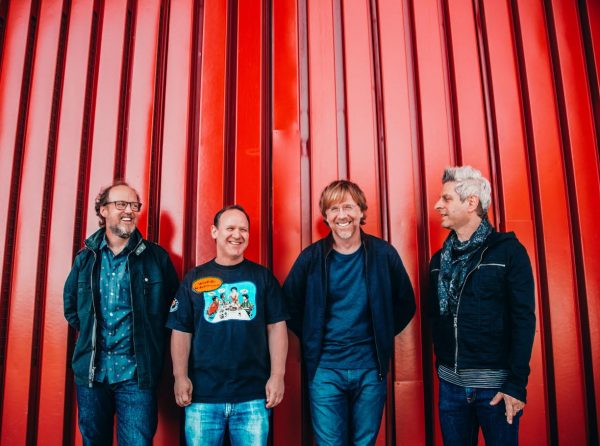
Photo courtesy of Phish
With each new year there are new trends in the music industry looking to disrupt the status quo, a one hit wonder you’ll hear this summer at Brooklyn Bowl, or some indie band that just almost made it. But Phish will be continuing to do what they do. Unless you are an Apple or Uber, not every customer is going to need or want your company’s products. Phish recognized what made their business unique and why their customers valued it, embracing change, adapting, and growing their base one fan at a time. With thirteen straight nights under the title of The Baker’s Dozen at Madison Square Garden this summer, hope to see you there.

